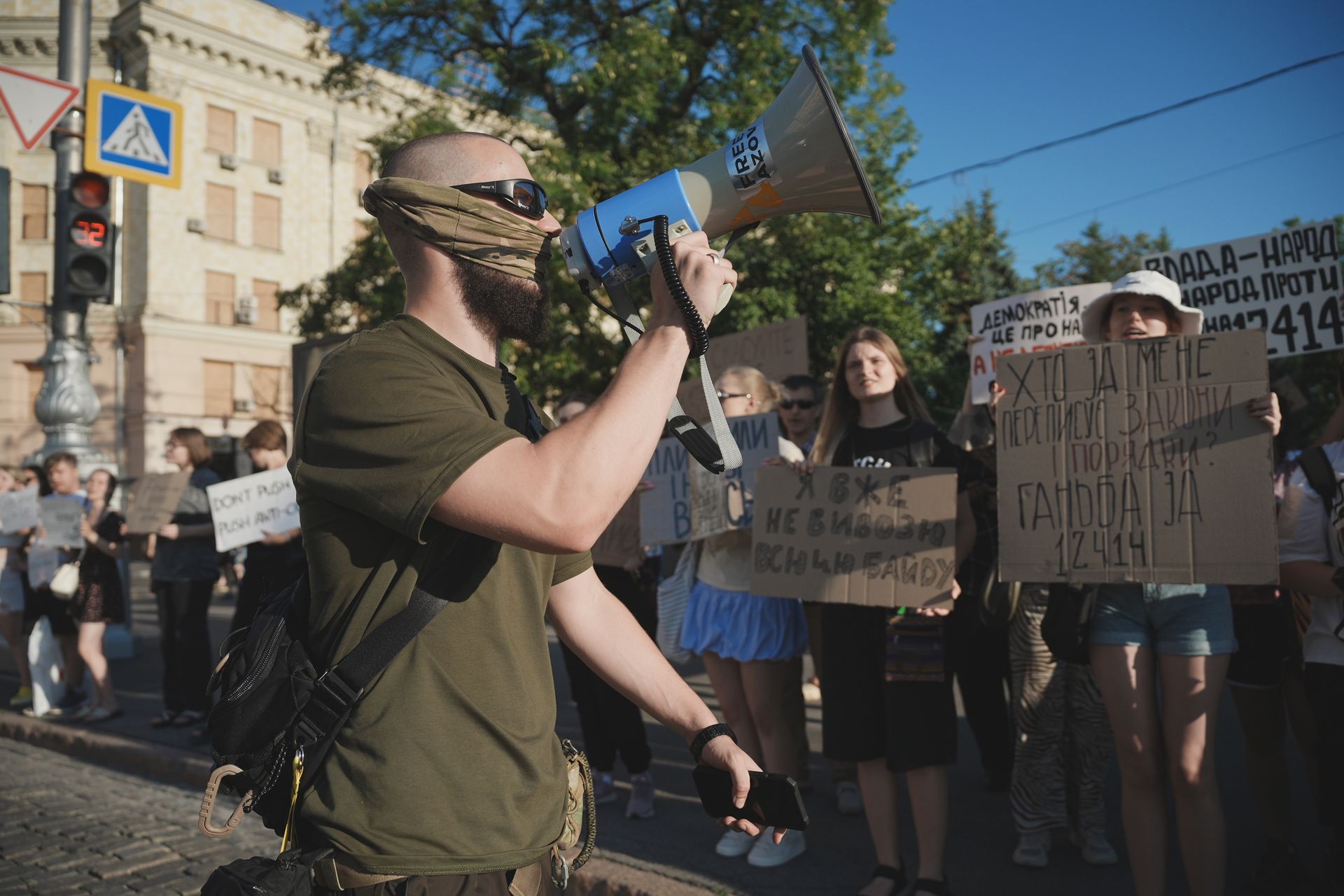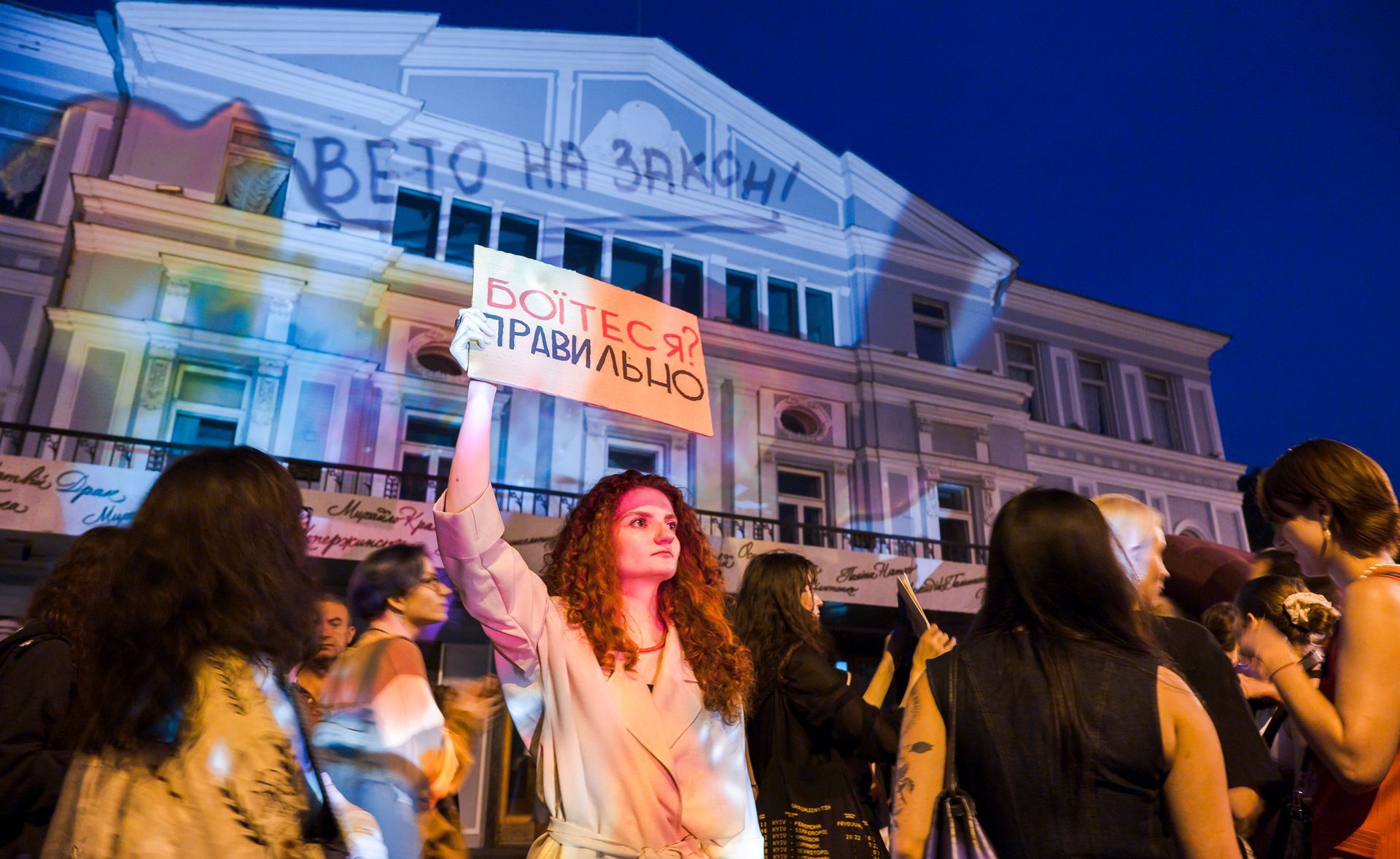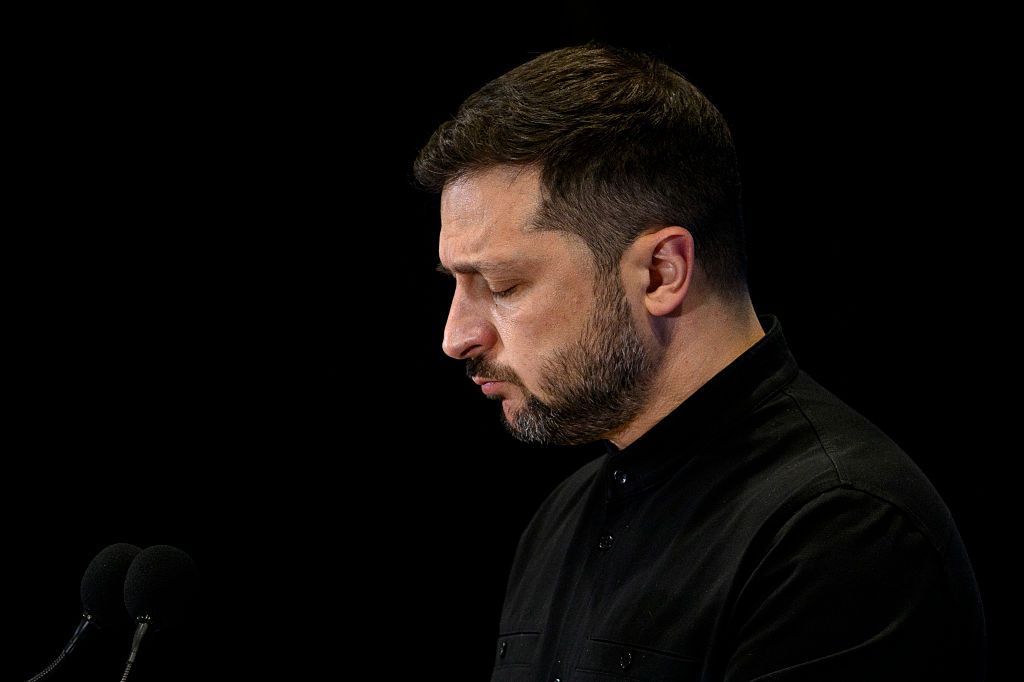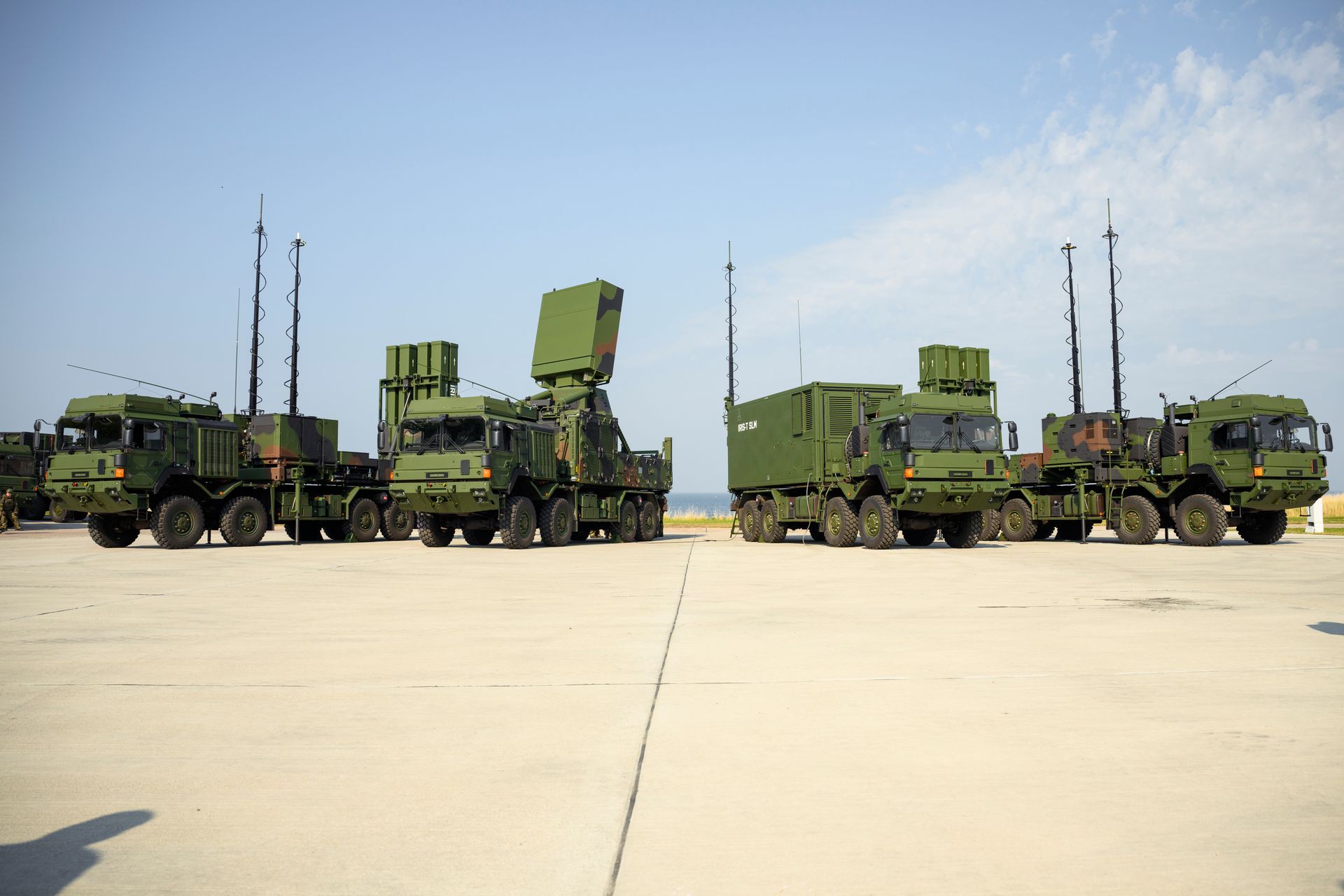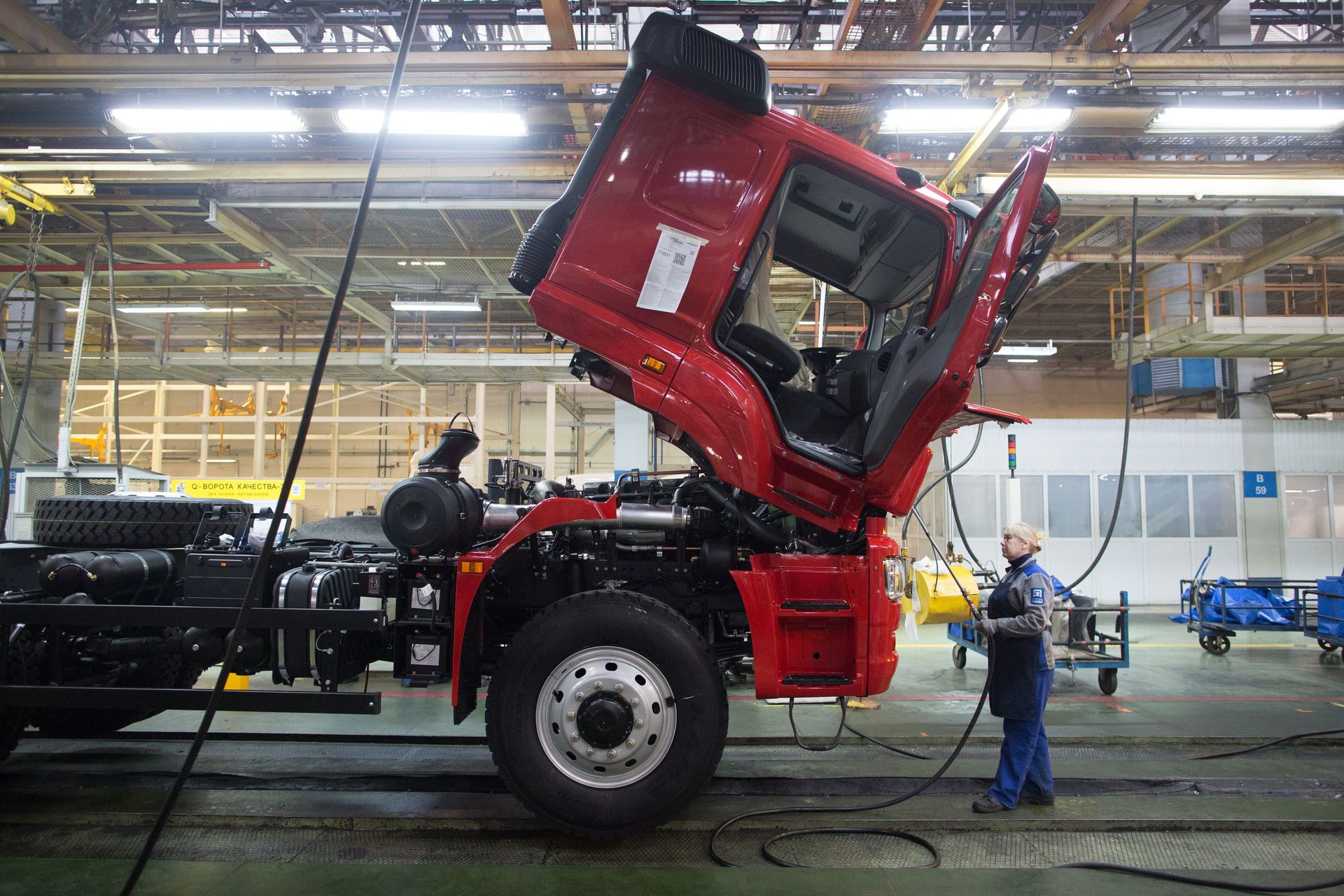Ukraine war latest: Ukraine wants 10 new Patriots but only has 3 secured, Zelensky says

Key developments on July 25:
- Ukraine wants 10 new Patriots but only has 3 secured, Zelensky says
- Trump suggests Russia sanctions could come sooner than 50-day deadline
- Zelensky sets 1,000-daily interceptor drones goal amid surging Russian attacks
- Musk ordered Starlink shutdown during Ukraine's 2022 Kherson counteroffensive, Reuters reports
- Ukraine plans drone deals with US valued at up to $30 billion, Zelensky says
- Ukrainian drones attack Russian chemical plant in Stavropol Krai, local officials, media report
Ukraine has secured three new Patriot air defense systems but has requested a total of ten, President Volodymyr Zelensky told journalists on July 24.
The U.S.-built Patriots are a vital part of Ukraine's layered air defense, and are the only system in the country capable of intercepting ballistic missiles, which Russia frequently uses in its escalating mass aerial attacks.
"We have requested ten," Zelensky said, adding Kyiv was "working with partners to secure these."
"I have officially received confirmation from Germany for two systems, and from Norway for one," he said, adding Ukraine was currently working with the Netherlands on securing another.
The development comes after U.S. President Donald Trump's July 14 announcement of a NATO- and EU-backed initiative under which alliance members will purchase U.S.-made weapons systems for Ukraine.
A complete Patriot system with interceptor missiles costs upwards of $1 billion.
Zelensky also said he was "fighting to get a production license" for the interceptor missiles that the Patriot system uses.
Washington has already sent three Patriot batteries to Ukraine, with Germany providing three more.
An additional battery has come from a European coalition, though not all of the systems are currently operational due to routine maintenance rotations.
Trump suggests Russia sanctions could come sooner than 50-day deadline
U.S. President Donald Trump signaled on July 25 that secondary sanctions against Russia could be imposed earlier than the 50-day deadline he announced earlier this month.
"We're looking at that whole situation. It could be that we'll have to impose secondary sanctions on you," he said, adding "maybe" when asked whether they could come sooner than 50 days.
The remarks follow a third round of Ukraine-Russia peace talks held in Istanbul on July 23, which lasted less than an hour and ended with Russia again rejecting a full ceasefire.
Ukraine proposed a summit between President Volodymyr Zelensky and Russian President Vladimir Putin before the end of August — a proposal the Kremlin has yet to accept.
"It's going to happen, but it should have happened three months ago," Trump said of a potential trilateral meeting with Zelensky and Putin.
Zelensky has reiterated his readiness for direct talks, including a three-way format with Trump and Putin. The Russian leader, while claiming openness to negotiations, has declined to participate in person and has delegated talks to lower-level officials.
Kremlin spokesperson Dmitry Peskov said on July 25 that a Zelensky-Putin summit is unlikely to take place within 30 days, arguing that detailed agreements must first be developed at the expert level.
Turkish President Recep Tayyip Erdogan said on the same day that he plans to speak with both Trump and Putin about convening them for talks in Turkey.
Trump originally announced on July 14 that Russia would face "severe" secondary tariffs if it refuses to end the war within 50 days. The measure is intended to cut off Moscow's oil revenue, which accounts for about one-third of the Russian federal budget.
Secondary sanctions target third parties doing business with a sanctioned country, imposing penalties such as 100% tariffs on goods entering the U.S. If countries like China continue buying Russian oil, they could face steep costs for access to the American market.
U.S. Treasury Secretary Scott Bessent told CNBC on July 21 that Washington hopes European allies will join in applying secondary tariffs to increase pressure on the Kremlin.
Zelensky sets 1,000-daily interceptor drones goal amid surging Russian attacks
President Volodymyr Zelensky on July 25 urged Ukrainian drone manufacturers to boost production and ensure the country can launch at least 1,000 interceptor drones each day.
The goal was announced as Russia escalates its use of Shahed-type attack drones in strikes against Ukraine, including the July 9 assault that saw Russia launch 741 aerial weapons in a single day.
"I met with representatives of this production and with other manufacturers. Our request is 1,000 interceptors per day," Zelensky said, noting that Ukraine must scale up domestic drone production within a set timeframe.
Interceptors are designed to detect, track, and neutralize other drones or aerial threats — a capability Ukraine sees as increasingly vital to defend cities from Russian barrages.
According to Ukraine's Foreign Intelligence Service, Moscow aims to produce 30,000 long-range drones and 2 million FPV (first-person-view) drones in 2025.
Defense Minister Denys Shmyhal told allies during a Ramstein-format meeting on July 21 that Ukraine will need $6 billion in 2025 to cover its weapons production gap.
On July 10, Zelensky warned that Russia may begin launching up to 1,000 drones per day. Germany's Maj. Gen. Christian Freuding said on July 19 that Moscow hopes to fire 2,000 drones each night.
Musk ordered Starlink shutdown during Ukraine's 2022 Kherson counteroffensive, Reuters reports
Billionaire Elon Musk ordered the deactivation of Starlink satellite coverage over part of Ukraine's Kherson Oblast during a major counteroffensive in the fall of 2022, Reuters reported on July 25, citing unnamed sources.
According to three individuals familiar with the matter, Musk instructed a senior SpaceX engineer to shut down coverage in the area near Beryslav, where Ukrainian forces were attempting to encircle Russian troops.
The move reportedly caused front-line units to lose connectivity, disabling drones and disrupting artillery coordination. A Ukrainian military source told Reuters that the outage directly contributed to the failure of the encirclement operation.
Ukrainian forces later liberated Kherson and other settlements on the west bank of the Dnipro River in November 2022, but the immediate impact of the blackout raised alarm among military officials in both Kyiv and Washington.
SpaceX, which operates Starlink, did not publicly confirm the incident. Musk, responding to similar allegations in the past, has denied ever disabling the terminals.
"To be extremely clear, no matter how much I disagree with the Ukraine policy, Starlink will never turn off its terminals," he wrote on X on March 9.
Reuters' sources claim Musk's decision stemmed from fears that a successful Ukrainian advance might provoke a Russian nuclear response.
The reporting emerged just a day after Starlink suffered a global outage on July 24. The company has not disclosed the cause, but the incident renewed concerns about Starlink's central role in Ukraine's communications infrastructure during wartime.
Hospitals, schools, and front-line military units across Ukraine rely heavily on the technology.
Ukraine plans drone deals with US valued at up to $30 billion, Zelensky says
President Volodymyr Zelensky said he had reached an agreement with U.S. President Donald Trump on the sale of Ukrainian drones to the United States.
Zelensky estimated the potential contract to be worth between $10 billion and $30 billion.
The news comes as Zelensky earlier announced a "win-win" deal, under which Washington would purchase Ukrainian-made drones in exchange for Kyiv acquiring U.S. weapons. The Trump administration has also approved two potential military sales to Ukraine worth an estimated $330 million.
"This agreement is in place," Zelensky said, speaking to journalists on July 24.
Oversight of the upcoming contracts with the United States will be carried out by National Security and Defense Council Secretary Rustem Umerov, Defense Minister Denys Shmyhal, and presidential advisor Oleksandr Kamyshin, according to Zelensky.
Ukraine is working to relocate elements of its national weapons production abroad, and is currently negotiating with Denmark, Norway, and Germany to establish joint manufacturing arrangements, Zelensky said.
The president added that Ukraine has reached an agreement with Denmark.
"For example, Denmark will set up production lines for long-range drones. They will provide additional funding for that — 100, 200, or 300 million. Long-range drones will be produced there and supplied to us during the war," Zelensky said.
"This production line is a 50/50 partnership with the private sector. But after the war, they will stockpile drones for themselves — for their own army," the president added.
Since the start of Russia's full-scale invasion in 2022, Kyiv has expanded drone production across all domains — air, land, and sea — with plans to manufacture 30,000 long-range drones in 2025.
Kyiv's hybrid strike platforms — including the Palianytsia and Peklo missile-drones — have attracted global interest for their ability to deliver precision strikes over extended ranges.
On June 1, Ukraine carried out an unprecedented drone strike as part of Operation Spiderweb, targeting four Russian air bases deep inside the country with first-person view (FPV) drones.
`Ukrainian drones reportedly attack Russian chemical plant in Stavropol Krai
Drones attacked several Russian regions overnight on July 25, targeting a chemical plant, local authorities, and independent media, Astra reported.
The plant, Nevinnomyssky Azot, a major Russian chemical manufacturer and part of the EuroChem Group, is one of the country's leading producers of nitrogen fertilizers and ammonia.
The plant is located in Stavropol Krai, a region in southern Russia that lies roughly 250 kilometers (155 miles) from the Ukrainian border, placing it within the potential range of long-distance drone strikes.
The chemical plant, which supplies nitric acid used in the production of high explosives such as octogen and hexogen, key components in artillery shells, has come under drone attack for the second time in two months. Following a previous strike in June, the facility had already suspended operations, according to Astra.

Mikhail Minenkov, the mayor of Nevinnomyssk, said the situation at the site was "under control" and that no casualties had been reported. While he did not confirm that a chemical plant was targeted, he urged residents not to share photos or videos of the aftermath of the strike.
The Russian Defense Ministry earlier claimed that Russian air defense systems reportedly intercepted and destroyed 105 Ukrainian drones during the night.
The highest number of drones was reportedly downed over Belgorod Oblast — 26, followed by Bryansk — 25, and Rostov Oblast — 23. Additional interceptions took place over Krasnodar Krai — eight, Stavropol Krai — five, and both Kursk and Tambov oblasts — three each. Two drones were shot down over Voronezh Oblast and one over Oryol Oblast. Nine drones were also reportedly destroyed over the Azov Sea.
Airports in several southern Russian cities, including Vladikavkaz, Grozny, Mineralnye Vody, Nalchik, Stavropol, Tambov, and Sochi, were temporarily closed, according to statements from airlines and local authorities.
Note from the author:
Ukraine War Latest is put together by the Kyiv Independent news desk team, who keep you informed 24 hours a day, seven days a week. If you value our work and want to ensure we have the resources to continue, join the Kyiv Independent community.



